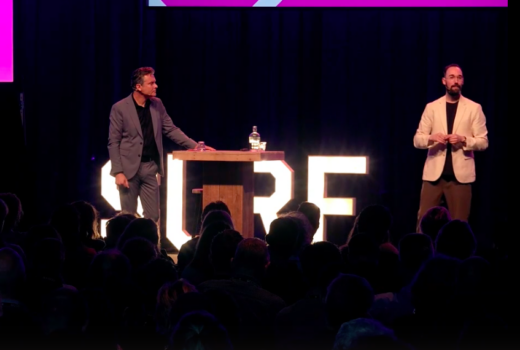Einde of nieuw begin van HO?

In een artikel in de New York Times zet Friedman zwaar aan. “Nothing has more potential to lift more people out of poverty — by providing them an affordable education to get a job or improve in the job they have. Nothing has more potential to unlock a billion more brains to solve the world’s biggest problems. And nothing has more potential to enable us to reimagine higher education than the massive open online course, or MOOC, platforms.”
De drempel is laag
Wat hem vooral treft is de snelheid waarmee mensen wereldwijd deze MOOC’s aan het omarmen zijn. De drempels zijn duidelijk nog nooit zo laag geweest. “When I visited [Coursera] last May, about 300,000 people were taking 38 courses taught by Stanford professors and a few other elite universities. Today, they have 2.4 million students, taking 214 courses from 33 universities, including eight international ones.”
“Anant Agarwal, the former director of M.I.T.’s artificial intelligence lab, is now president of edX, a nonprofit MOOC that M.I.T. and Harvard are jointly building. Agarwal told me that since May, some 155,000 students from around the world have taken edX’s first course: an M.I.T. intro class on circuits. “That is greater than the total number of M.I.T. alumni in its 150-year history,” he said.”
Friedman ziet zelfs een heel nieuwe en veel aantrekkelijker en effectiever manier opdoemen van ontwikkelingssamenwerking, veel minder kostbaar en veel meer mensen stimulerend. “Imagine how this might change U.S. foreign aid. For relatively little money, the U.S. could rent space in an Egyptian village, install two dozen computers and high-speed satellite Internet access, hire a local teacher as a facilitator, and invite in any Egyptian who wanted to take online courses with the best professors in the world, subtitled in Arabic.” Minister Ploumen leest u even mee?
Duizenden reacties
En dat geldt ook voor Robbert Dijkgraaf. Want Friedman haalt een essay aan van een hoogleraar in zijn prachtige Princeton, die wijst op de fundamenteel andere kwaliteit van interactie rond zijn colleges, zoals deze vanuit de MOOC-ontwikkeling nu aan het ontstaan is.
“A few months ago, just as the campus of Princeton University had grown nearly silent after commencement, 40,000 students from 113 countries arrived here via the Internet to take a free course in introductory sociology. … My opening discussion of C. Wright Mills’s classic 1959 book, ‘The Sociological Imagination,’ was a close reading of the text, in which I reviewed a key chapter line by line,” aldus de socioloog Mitch Duneier.
“I asked students to follow along in their own copies, as I do in the lecture hall. When I give this lecture on the Princeton campus, I usually receive a few penetrating questions. In this case, however, within a few hours of posting the online version, the course forums came alive with hundreds of comments and questions. Several days later there were thousands. … Within three weeks I had received more feedback on my sociological ideas than I had in a career of teaching, which significantly influenced each of my subsequent lectures and seminars.”
Er komt een nieuwe wereld aan
De collegevoorzitter van MIT ziet een revolutie voor zijn ogen losbarsten, beslist geen hype. L. Rafael Reif ziet dat het halen van een graad niet verdwijnt, maar ook niet langer als ‘one size fits all’ zal kunnen domineren. Hij zei tegen Friedman, dat “many universities will offer online courses to students anywhere in the world, in which they will earn ‘credentials’ — certificates that testify that they have done the work and passed all the exams. The process of developing credible credentials that verify that the student has adequately mastered the subject — and did not cheat — and can be counted on by employers is still being perfected by all the MOOCs. But once it is, this phenomenon will really scale.”
Het hoger onderwijs zal hierdoor getransformeerd worden. Want de ontwikkeling van MOOC’s als gratis leerprocessen en kennisdeling wereldwijd zal de drie kernpunten van HBO en WO veranderen, zegt Friedman: het onderwijsproces zelf, het leren en de routes naar de arbeidsmarkt. “There is a new world unfolding,” zo haalt hij de MIT-president nog eens aan, “and everyone will have to adapt.”
Meest Gelezen
Vrouwen houden universiteit draaiende, maar krijgen daarvoor geen waardering
Hbo-docent wil wel rolmodel zijn, maar niet eigen moreel kompas opdringen
Wederom intimidatie van journalisten door universiteit, nu in Delft
‘Waarom het nu niet lukt om medezeggenschap in hbo te versterken’
‘Sluijsmans et al. slaan de plank volledig mis’



